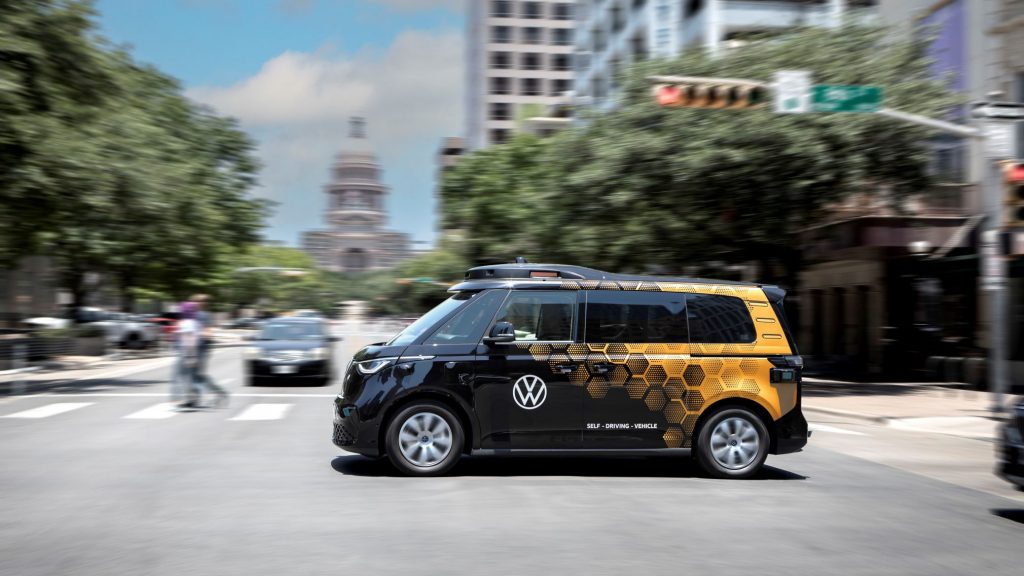
Volkswagen Commercial Vehicles has conducted its first autonomous driving tests with passengers in Munich, Germany, coinciding with the launch of a test program in Austin, TX, using all-electric ID. Buzz AD (Autonomous Driving) vehicles that are equipped with a self-driving system from Mobileye. The strategy is focused on commercial use in urban centers both for ridesharing and transport services, carrying political, public, and business decision-makers as well as the media so they can get an idea of the vehicle’s control capabilities.
“Expanding our autonomous vehicle program to North America is the next step in our global strategic roadmap and the result of a long-term investment,” said Christian Senger, member of the Board of Management responsible for the development of autonomous driving at Volkswagen Commercial Vehicles. “This will help us to test, validate, and refine the technology on American roads as well.”
Volkswagen already has some experience in knowing what fleet passengers want and operators need. The group’s subsidiary MOIA has been offering ridesharing services since 2019, transporting more than 8.5 million passengers. Unlike in Germany, where MOIA will be the first to use the ID. Buzz ADs, Volkswagen will not directly provide autonomous driving services in the U.S. but instead will rely on external mobility and transport sector companies.
The launch of the Texas testing program not only boosts Volkswagen Group’s global AV R&D effort but also gives the Volkswagen Group of America (VWGoA) the lead in strategy and business development in the U.S. It has established a subsidiary called Volkswagen ADMT, LLC, to support the roll-out of the AV program, with teams in Austin and Belmont, CA. The company plans to employ some team members who previously worked with Argo AI just as Ford is doing with its Latitude AI unit.
“Expanding Volkswagen Group’s global autonomous driving vehicle program to the United States marks an important milestone for us,” said Pablo Di Si, President and CEO of VWGoA.
“We selected Austin as the first U.S. hub, as the city has a track record for embracing innovation and offers a conducive climate for the testing of autonomous vehicles,” elaborated Katrin Lohmann, President, of Volkswagen ADMT, LLC. “We are committed to continuing an open and collaborative dialogue with the city and its diverse stakeholders.”
Each of the SAE Level 4 ID. Buzz AD vehicles is equipped with camera, radar, and lidar sensor technologies, collecting data in a variety of driving scenarios during the testing phase while being occupied by supervising human drivers. The large-capacity model offers space for four passengers and can be produced in large quantities once it is ready for series production.
After VWGoA kicks off its test program in Austin this month with a batch of 10 all-electric ID. Buzz vehicles, over the next three years there are plans to expand testing operations to at least four more cities. It anticipates a commercial launch of autonomous driving vehicles in Austin by 2026.

